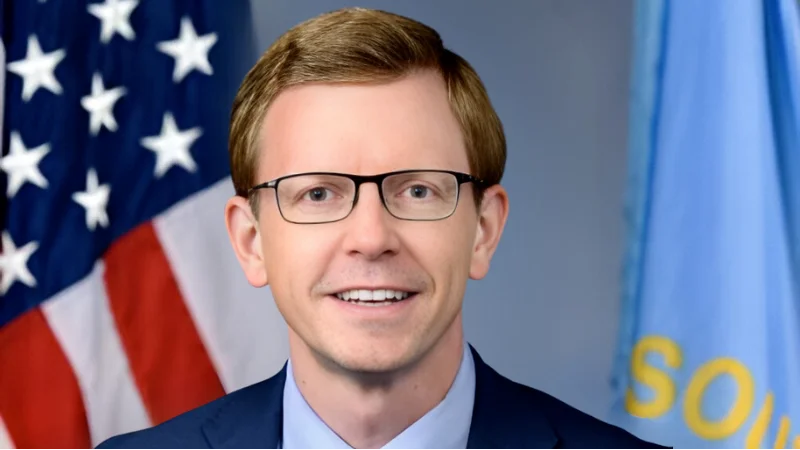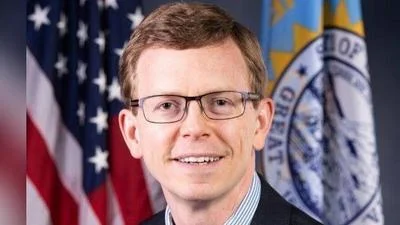Rep. Dusty Johnson, U.S. Representative for South Dakota | Congresman Dusty Johnson Official U.S. House Headshot
Rep. Dusty Johnson, U.S. Representative for South Dakota | Congresman Dusty Johnson Official U.S. House Headshot
U.S. Representative Dusty Johnson (R-S.D.) has introduced the Eliminate Shutdowns Act, a bill designed to prevent future government shutdowns. Senator Ron Johnson (R-WI) is leading the effort in the Senate. The legislation comes as Congress often faces potential shutdowns if it does not complete funding by September 30, which can cost billions of dollars and negatively impact the U.S. economy.
“Shutdowns are stupid, and everyone knows it,” said Johnson. “I was sent to Congress to make sure the government serves South Dakotans – it can’t possibly serve South Dakota if it is closed. Almost every other country does not face the threat of a government shutdown. The Eliminate Shutdowns Act will keep the government open, so it can work for you, while encouraging Congress to pass new funding packages.”
The proposed bill would automatically trigger a 14-day continuing resolution if appropriations lapse. If Congress still fails to pass funding or another continuing resolution after those 14 days, funding would continue for additional 14-day periods until an agreement is reached. The automatic extension ends once Congress passes an appropriations bill or another continuing resolution.
The legislation also ensures that entitlements and mandatory programs continue at current levels during these periods, with the Office of Management and Budget retaining authority over fund allocation. Agency heads could transfer up to five percent between accounts with OMB approval but must notify congressional appropriators and prioritize higher-need areas.
Representative Bryan Steil (R-WI) is an original cosponsor of the bill.
Dusty Johnson has represented South Dakota’s at-large district in Congress since 2019, succeeding Kristi Noem. He was born in Pierre, South Dakota in 1976 and currently lives in Mitchell. Johnson graduated from the University of South Dakota in 1999 with a Bachelor of Arts degree.
A full text of the bill can be found here.


 Alerts Sign-up
Alerts Sign-up